
Human Physiology (Biol 236)
Human Anatomy (Biol 205)
Biology of Sex (Biol 213)
Senior Seminar (Biol 499)
Veterinary Studies Program
PURE Program
My Research
Academic Advising
Curriculum Vitae
About Me
Contact
Tamatha
Barbeau, Ph.D.
Associate Professor of Biology
Coordinator: Veterinary Studies Program
Coordinator: Program for Undergraduate Research Experience (PURE)
Office: LSF 204G
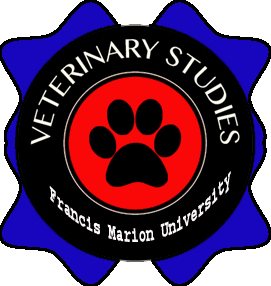 |
Veterinary Studies Internship (Biol 490) |
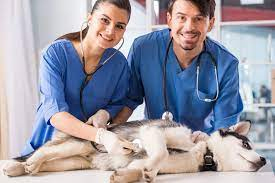 |
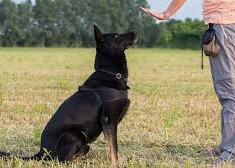 |
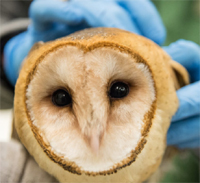 |
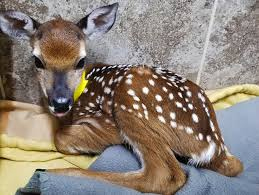 |
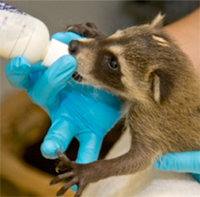 |
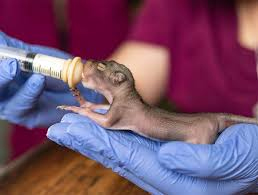 |
490 Veterinary Studies
Internship (1),
or (2) (Prerequisite: Permission of department). There is a maximum of 3 credit
hrs of internship, total.
The purpose of this internship is to provide Pre-Veterinary
students with clinical experience in veterinary medicine under the supervision
of a practicing veterinarian. This internship is ALSO for students who want
a career working with animals, in a non-veterinary capacity, to gain experience
by working with a certified or experienced animal professional in that area.
This can include animal trainers, animal groomers, zoos, wildlife rehabilitators,
animal pest removal services, department of natural resources, and other facilities.
A maximum of 3 semester hours may be earned, total. Earned hours DO fulfill
the requirements for Biology electives for a major, minor, or collateral,
but simply serve as added credit hours (Please note, that this will change
for the academic year of 2023 - 2024, so that internship credit will count
towards a Biology degree. Please contact Dr. Barbeau for more information.).
The goal of this internship is not to pad credit hours into your program but
to provide you with valuable experience and training that cannot be acquired
in a traditional classroom.
1) This course will be for BOTH students who want to apply to a veterinary
program after their undergraduate work, and for students that want to prepare
for a career working with animals in a non-veterinary capacity.
2) Students participating in this internship can gain experience in the following
two categories: A. In regional veterinary facilities, including non-profit
spay and neuter clinics (e.g., Spay Neuter Intervention of the Pee Dee or
SNIP), or Lucky Dog Rescue, working closely with veterinary professionals.
This will provide valuable experience for students desiring to pursue veterinary
medicine as a career. Furthermore, veterinary programs require work experience
on applications, and this internship would assist in accountability for such
experience. B. Working with professionals in careers such as Animal Training,
Wildlife Rehabilitation, Zoos, Pet Therapists, Pet Groomers, Nuisance Animal
Control, and Department of Natural Resources, to name some possibilities.
For information about internship opportunities at Lucky
Dog Animal Rescue of Florence, SC, contact Dr. Barbeau, and click
HERE
for internship description, and HERE
for general volunteer opportunities. For information about internship opportunities
at Black
Creek Wildlife Center, please contact Dr. Barbeau. For all other internship
opportunities, contact Dr. Barbeau.
Internship Teaching Methods: We will follow some of the same guidelines
already in place for normal Biology Internship (Biol 498). The Internships
require a total of two supervisors. In this case, the two supervisors will
be the veterinary studies advisor involved (Dr. Tamatha Barbeau), and the
supervisor at the location of your internship.
Textbook and / or Materials: No textbook or materials are required
for this course. However, all students enrolling in the internship are required
to attend an orientation session with Dr. Barbeau during the first week of
classes. Additional orientation and training will be provided on-site at the
internship facilities involved.
Credit hours: The
guidelines in this syllabus are for those registered to earn 1 credit for
Biol 490: Veterinary Studies Internship. Students may take 1 credit hour (3
hours/week for 13 weeks) or 2 credit hours (6 hours/week for 13 weeks). There
is a maximum of 2 credit hrs in a single semester. There is a maximum of 3
credit hrs for this internship course.
Professional
Conduct: Students participating in the Internship are required to always
maintain professional conduct with co-workers. Unprofessional conduct will
be considered a violation of the Honor Code for students at Francis Marion
University, and can result in failure of the course. You are expected to act
professionally and represent yourselves, your department, and your university
with pride and dignity. Be on time, dress appropriately, and treat people
and animals with respect. This is a professional opportunity, in addition
to an academic one. You are expected to comply with all guidelines and regulations
provided by your host site.
Definition of Unprofessional Behavior: Any behavior that is contentious,
threatening, insulting, or potentially litigious or otherwise interferes with
an individual's or group's professional responsibilities, self-respect, or
ability to collaborate productively with others. It is behavior that creates
an unsafe, intimidating, hostile, destructive, or offensive work, academic
or clinical environment.
Examples of unprofessional or disruptive behavior include but are not limited
to the following:
o Inappropriate conduct such as shouting, or use of vulgar, profane, or abusive
or threatening language.
o Intimidating behavior. o Refusal to cooperate with others.
o Conduct that constitutes sexual harassment.
o Refusal to adhere to stated facility / staff policies.
o Inappropriate comments written in official documents that impugn staff or
faculty.
Course Requirements: The purpose of this course is to provide valuable
experience for students desiring to pursue a career in either the veterinary
field or a field working with animals in a non-veterinary capacity. Individual
students are assigned to pre-determined locations within the Pee Dee region,
and students will work closely with their intern supervisor and take an active
role in providing care and support for animals.
1. You
must speak with the Veterinary Studies Coordinator to be enrolled in Biol
490, and enroll before the end of the drop/add period for the semester. Then,
you must attend the Biol 490 (Veterinary Studies Internship) orientation session
by the end of the first week of the semester.
2.
You must keep a weekly journal of your Internship activities (skills,
techniques, and other things you have learned) at your location. Remember
that HIPAA regulations prohibit you from providing me with any names or personal
details of facility staff. I recommend keeping this journal in a traditional
three-ring binder. You
must E-mail your
weekly journal (as Word, Google Doc, or PDF document) to the Veterinary Studies
Coordinator no later than Sunday at midnight of each week of your internship.
3. At the
end of each semester, you need to write a final report describing the value
of your internship experience (skills gained, and how it has affected your
goals and career choices). This should be double-spaced and 1 - 2 page Word
document, which meets the following requirements:
• All reports must use appropriate sentence structure, grammar, organization,
punctuation and spelling.
• All reports must demonstrate evidence of logical development of thought,
clarity, and organization.
• All reports must be submitted by email (attachment) unless instructed
otherwise.
Your must E-mail
your final report to the Veterinary Studies Coordinator no later than midnight
of Reading Day.
4. At the
end of the semester, the intern must submit a completed Student
Intern End-of-the-Semester Questionnaire. Please fill this out and
return it to me by Reading Day.
5. Your location
supervisor must fill out and submit the Biol 490 Student
Intern Evaluation form They can place the completed form in the sealed
envelope and return it to you, for you to bring to me. They can send it through
regular mail (see address below), OR it can be sent via E-mail
to the Veterinary Studies Coordinator by Reading Day.
Grading Methods:
| Assignment | Percent of Final Grade |
| Attend Orientation Session | 10% |
| Weekly Journal | 20% |
| Final Report | 50% |
| Completed Student Intern Evaluation Form | 10% |
| Completed Student Intern Questionnaire | 10% |
Should
you or your site manager need to contact me:
Tamatha Barbeau, PhD
Professor of Biology
Veterinary Studies Program Coordinator
Francis Marion University P.O. Box 100547, Florence, SC 29502
Office: 843-661-4651
Fax: 843-661-4660
E-mail
Web: people.fmarion.edu/tbarbeau
Written by Tamatha Barbeau, 2004. This web site is for educational purposes; if you own an image on this site and would like it removed or used with permission, or if you have comments, corrections, or suggestions, please contact me.